Are you tired of the monthly expense and environmental impact of disposable feminine products? Reusable feminine pads offer an eco-friendly, economical alternative that's gaining popularity among women seeking sustainable period care solutions. In this comprehensive guide, we'll explore everything you need to know about making the switch to reusable feminine pads.
What Are Reusable Feminine Pads?
Reusable feminine pads, also known as cloth pads, washable pads or reusable menstrual pads, are sustainable alternatives to disposable sanitary pads. Made from absorbent, breathable fabrics like organic cotton, bamboo, or hemp, these pads can be washed and reused for years, making them both environmentally friendly and cost-effective.
Unlike disposable pads that contain synthetic materials and chemicals, reusable feminine pads are typically made from natural, hypoallergenic materials that are gentler on sensitive skin.
Benefits of Using Reusable Feminine Pads
Environmental Impact
Traditional disposable pads can take 500-800 years to decompose, contributing significantly to landfill waste. The average woman uses approximately 11,000 disposable feminine products in her lifetime. By switching to reusable feminine pads, you can dramatically reduce your environmental footprint.
Cost Savings
While the initial investment in reusable feminine pads may seem higher, the long-term savings are substantial. A quality set of reusable pads can last 3-5 years with proper care, potentially saving hundreds of dollars compared to continuously purchasing disposables.
Health Benefits
Reusable feminine pads are often made from organic, chemical-free materials, reducing exposure to:
- Bleaches and dioxins
- Synthetic fragrances
- Plastic materials that can cause irritation
- Harsh chemicals that may disrupt natural pH balance
Comfort and Breathability
Many users report that cloth pads are more comfortable than disposables, offering better breathability and reduced chafing. The soft, natural fabrics move with your body and don't create the plastic-like feeling of conventional pads.
Types of Reusable Feminine Pads
Absorbency Levels
Reusable feminine pads come in various absorbency levels:
- Light flow: Perfect for the beginning or end of your cycle
- Regular flow: Suitable for moderate flow days
- Heavy flow / Overnight : Designed for your heaviest days
How to Choose the Right Reusable Feminine Pads
Consider Your Flow
Assess your typical menstrual flow to determine the absorbency levels you'll need. Most women benefit from having a variety of absorbencies in their collection.
Material Preferences
- Organic cotton: Soft, breathable, and naturally antibacterial
- Bamboo: Highly absorbent and naturally antimicrobial
- Hemp: Durable and becomes more absorbent with each wash
- Microfiber: Quick-drying but less breathable than natural options
Size and Shape
Reusable pads come in various lengths and widths to accommodate different body types and preferences. Consider your anatomy and clothing choices when selecting sizes.
Wing Style
Wings help keep the pad in place and prevent leaks. Look for pads with adjustable snap closures for a secure, comfortable fit.
How to Use Reusable Feminine Pads
Using reusable feminine pads is straightforward:
- Placement: Position the pad in your underwear with the absorbent side facing up
- Securing: Wrap the wings around the crotch of your underwear and snap them closed
- Changing: Remove when full (typically every 4-6 hours) and replace with a fresh pad
- Storage: Store used pads in a wet bag or waterproof pouch until washing
Caring for Your Reusable Feminine Pads
Initial Preparation
New reusable feminine pads should be washed 2-3 times before first use to maximize absorbency. Natural fibers become more absorbent with each wash.
Daily Care During Your Cycle
- Rinse used pads in cold water immediately after removal
- Store wet pads in a waterproof bag or dry pail until wash day
- Avoid using fabric softeners, which can reduce absorbency
Washing Instructions
- Rinse: Remove excess blood with cold water
- Pre-treat: Apply stain remover if needed
- Machine wash: Use warm water and regular detergent
- Dry: Air dry for best results, or tumble dry on low heat
Long-term Maintenance
- Deep clean with oxygen bleach if needed
- Avoid harsh chemicals and fabric softeners
- Store in a wet bag when not in use
Making the Transition to Reusable Feminine Pads
Start Gradually
Consider starting with reusable pads for lighter days or as backup protection while you adjust to the feel and routine.
Build Your Collection
Most users find they need 12-24 pads total, depending on their flow and washing frequency. Start with a basic set and add more as needed.
What to Expect
- The first few cycles may require adjustment as you learn timing and placement
- Staining doesn't affect function, but shouldn't occur with an adequate wash routine
Common Concerns About Reusable Feminine Pads
"Are they hygienic?"
When properly cared for, reusable feminine pads are just as hygienic as disposables. The key is prompt rinsing and thorough washing.
"Do they leak?"
Quality reusable pads with proper waterproof backing are highly effective at preventing leaks when changed regularly.
"Are they bulky?"
Modern reusable feminine pads are designed to be slim and discreet while maintaining excellent absorbency.
"What about odor?"
Natural, breathable materials actually help reduce odor compared to plastic-backed disposables. Proper care prevents any lingering smells.
Environmental Impact: The Numbers
Switching to reusable feminine pads creates significant environmental benefits:
- Reduces landfill waste by approximately 120 KG per woman over her lifetime
- Eliminates the production waste from manufacturing thousands of disposable products
- Reduces packaging waste from individual product wrapping
- Decreases carbon footprint from transportation and distribution of disposables
Conclusion
Reusable feminine pads offer a sustainable, healthy, and economical approach to menstrual care. While the transition requires an initial investment and learning curve, most users find the benefits far outweigh any temporary inconvenience.
By choosing reusable feminine pads, you're making a positive impact on both your health and the environment while saving money in the long run. Whether you're motivated by environmental concerns, health considerations, or financial savings, reusable pads provide an excellent alternative to conventional disposable products.
Ready to make the switch? Start with a small collection to test different styles and absorbencies, then build your supply based on your preferences and needs. Your body, wallet, and the planet will thank you for making this sustainable choice.
Looking for high-quality reusable feminine pads? Explore our collection of sustainable period care products designed for comfort, reliability, and environmental responsibility.


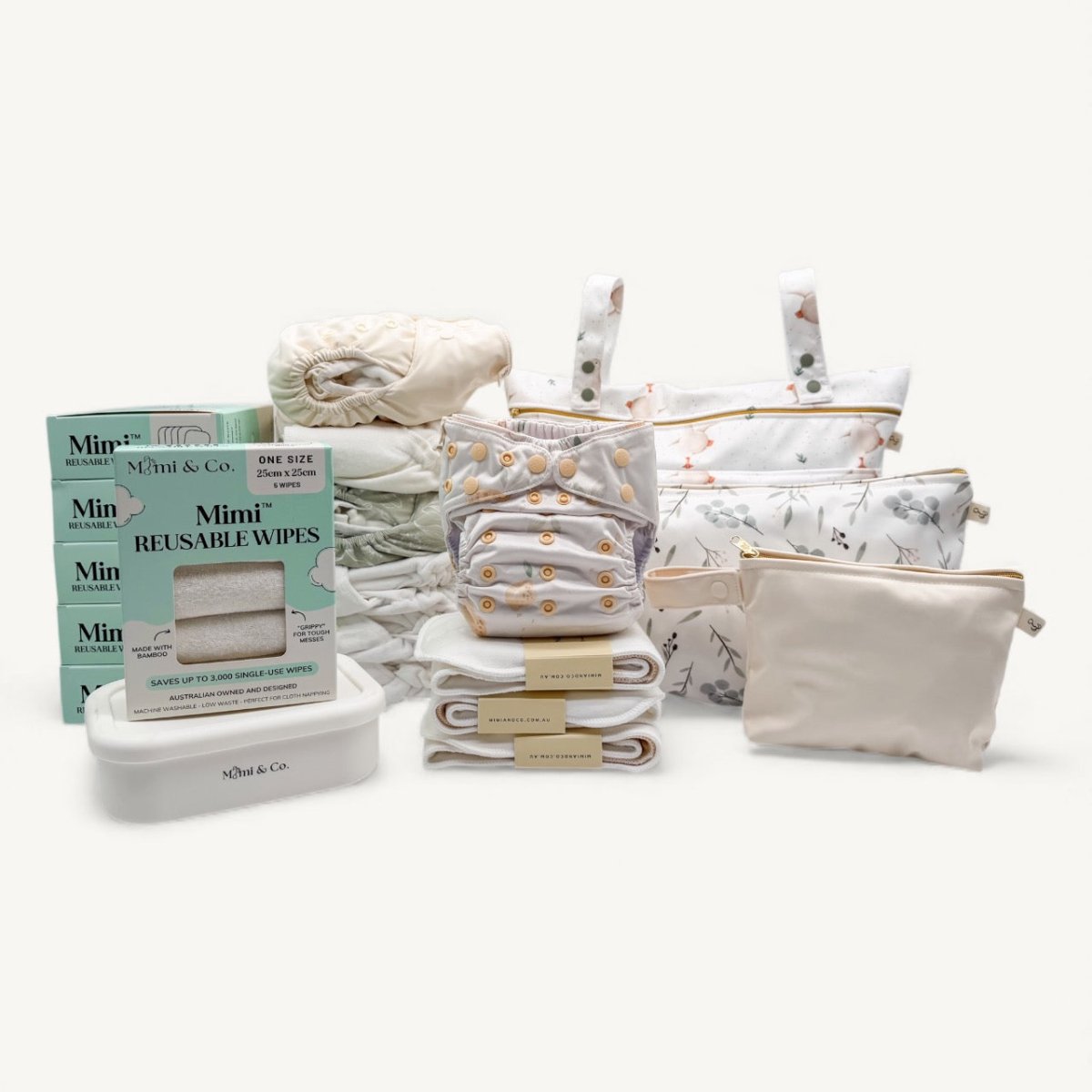
![Swim Nappy Bundle [Ship Oct 5 - 10] - Mimi & Co](http://mimiandco.com.au/cdn/shop/files/swim-nappy-bundle-ship-oct-5-10-5796576.jpg?v=1770171125)

![Toilet Training Undies Pants [Jan Preorder] - Mimi & Co](http://mimiandco.com.au/cdn/shop/files/toilet-training-undies-pants-jan-preorder-6316642.jpg?v=1766216229&width=1200)
![Reusable Bamboo Mimi™ Wipes [5 Pack] - Mimi & Co](http://mimiandco.com.au/cdn/shop/files/reusable-bamboo-mimi-wipes-5-pack-7600782.jpg?v=1770590089)


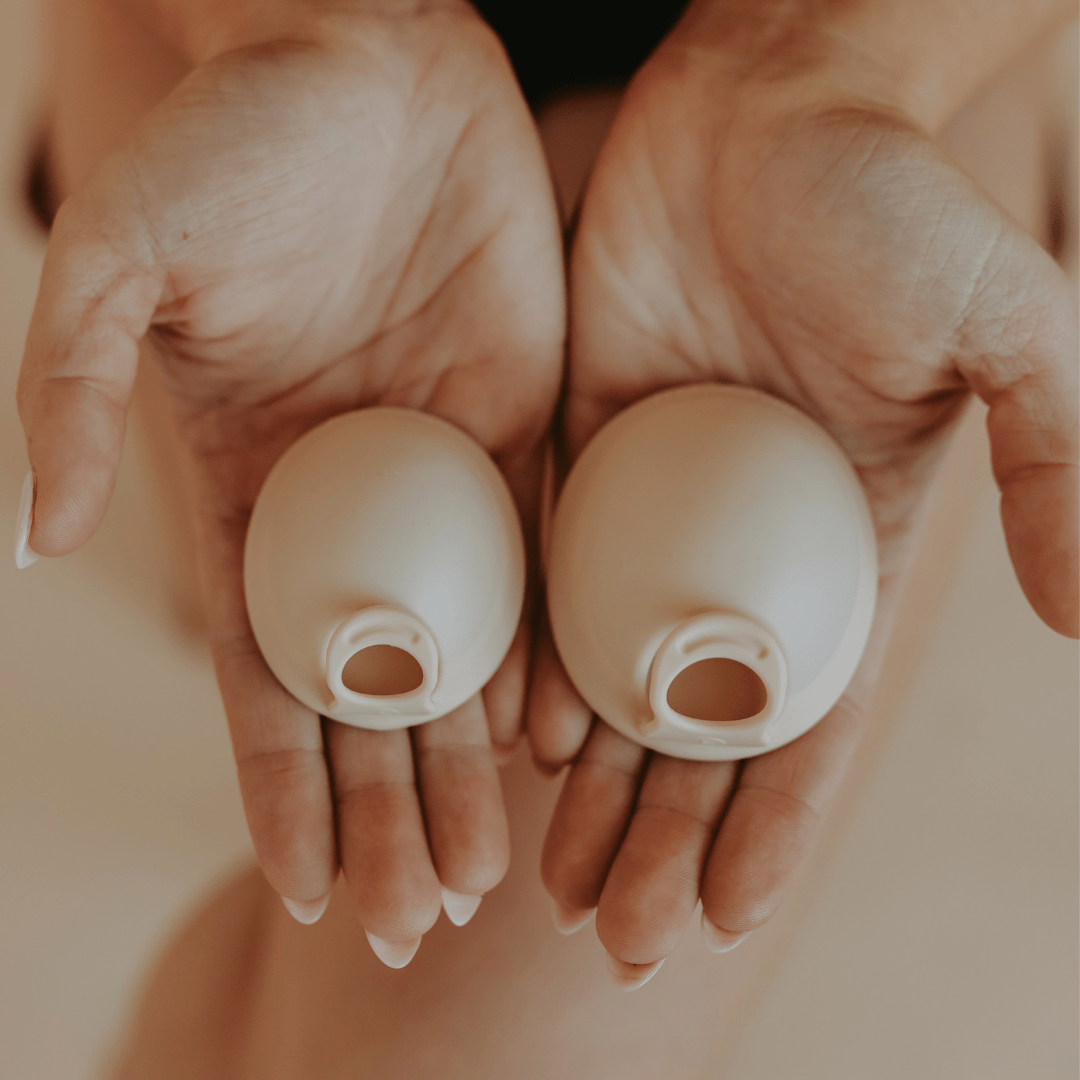
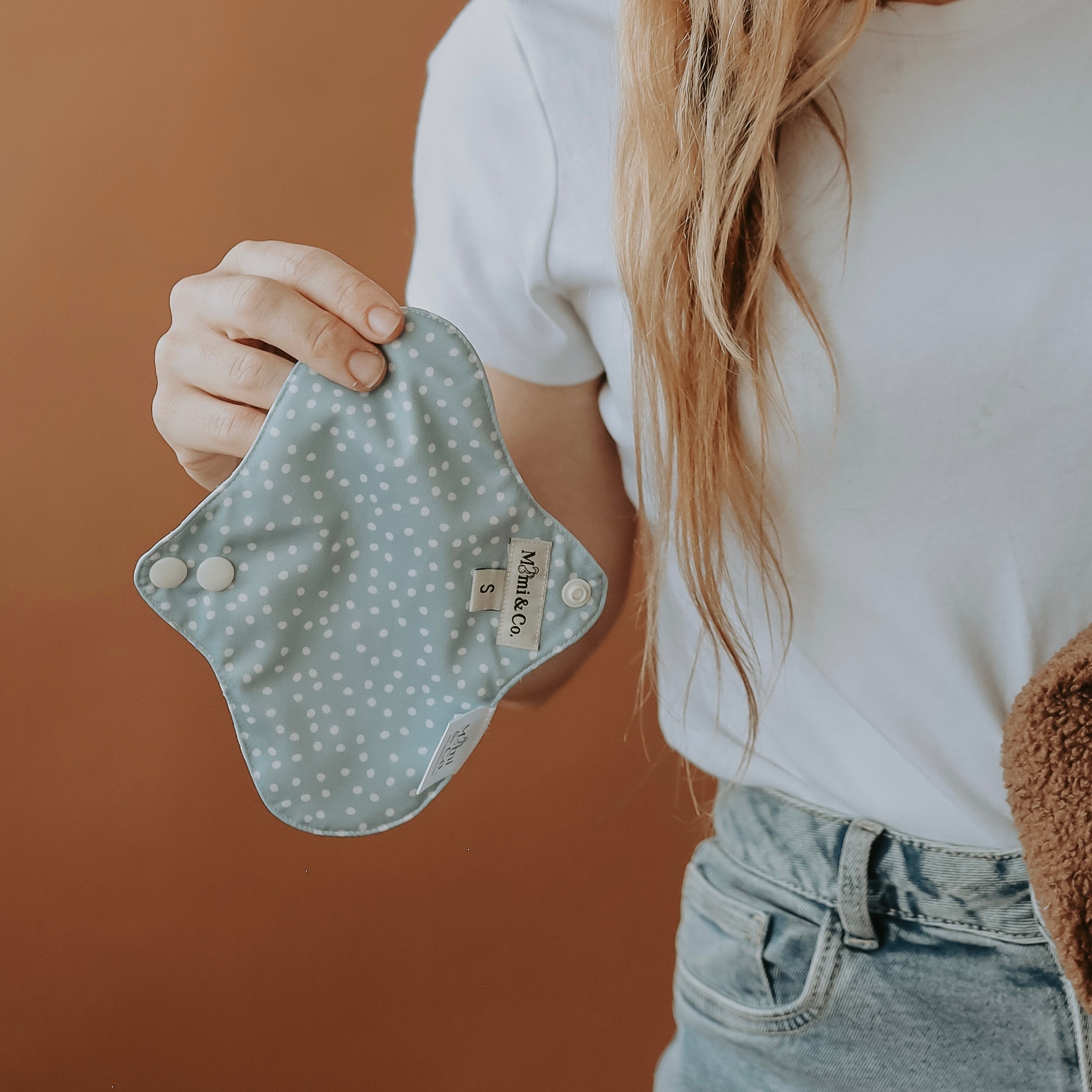
![Reusable Mimi® Menstrual Underwear [Shipping 31/9] - Mimi & Co](http://mimiandco.com.au/cdn/shop/files/reusable-mimi-menstrual-underwear-shipping-319-6508918.png?v=1759809525)


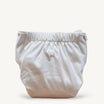

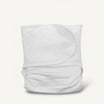
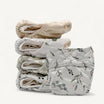
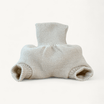
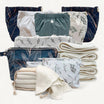
![Tiny Transitions™ Training Undies [January Preorder] - Mimi & Co](http://mimiandco.com.au/cdn/shop/files/tiny-transitions-training-undies-january-preorder-9963304.jpg?v=1768434261&width=104)
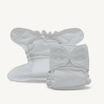

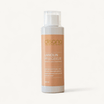
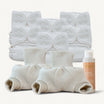
![One - Size Reusable Mimi® Swim Nappy | Pink Dusk [Ships 14th March] - Mimi & Co](http://mimiandco.com.au/cdn/shop/files/one-size-reusable-mimi-swim-nappy-pink-dusk-ships-14th-march-8210142.jpg?v=1770103330&width=104)
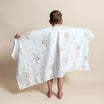

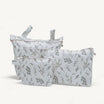
![Travel Bamboo Change Mat [Ships March 14th] - Mimi & Co](http://mimiandco.com.au/cdn/shop/files/travel-bamboo-change-mat-ships-march-14th-1490896.jpg?v=1769606287&width=104)
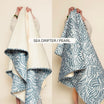
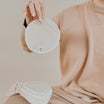
![Reusable Bamboo Wipes [5 Pack] - Mimi & Co](http://mimiandco.com.au/cdn/shop/files/reusable-bamboo-wipes-5-pack-580411.webp?v=1764820089&width=104)
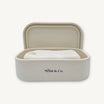
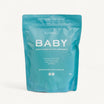
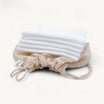
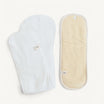
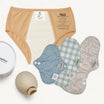
![Reusable Mimi® Menstrual Underwear [Shipping 31/9] - Mimi & Co](http://mimiandco.com.au/cdn/shop/files/reusable-mimi-menstrual-underwear-shipping-319-6508918.png?v=1759809525&width=104)
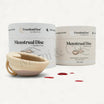
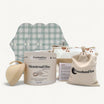
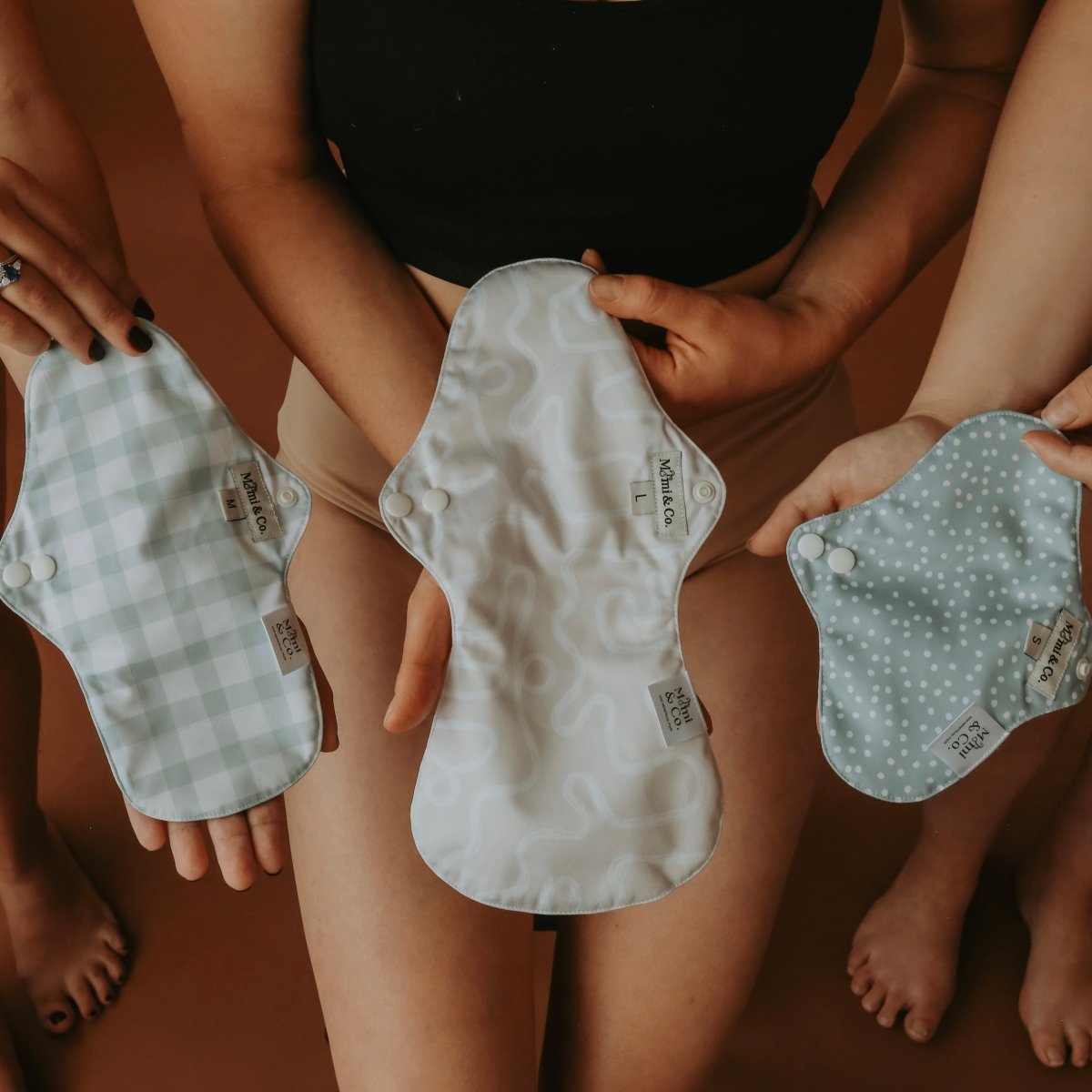
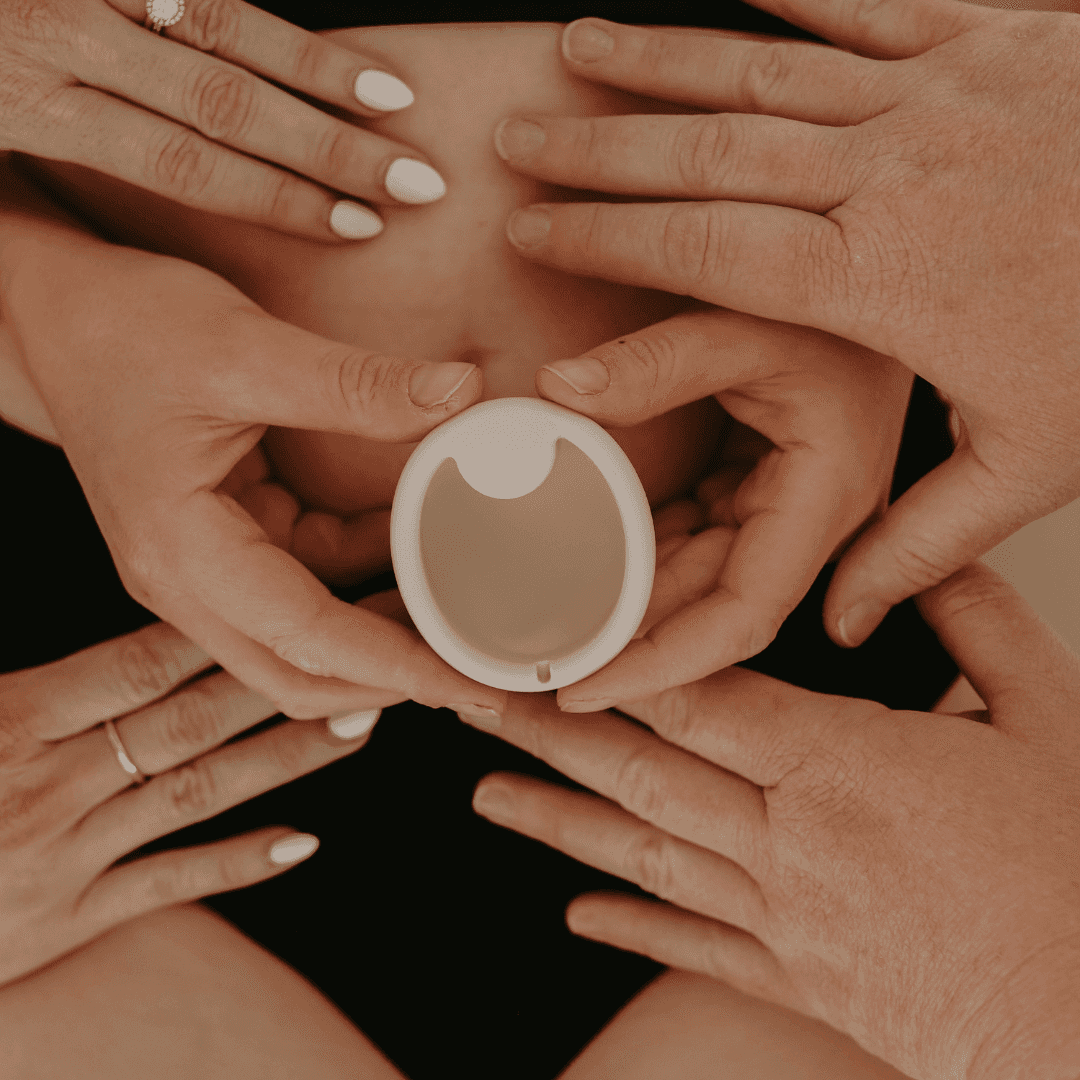





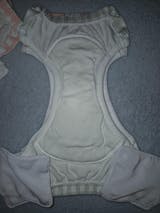
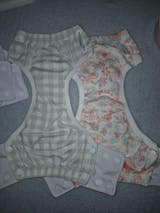
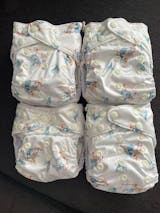
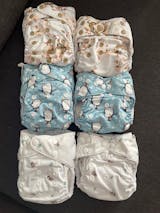
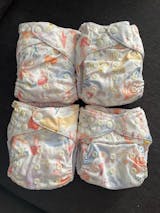
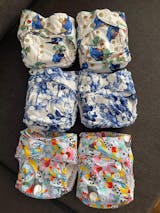
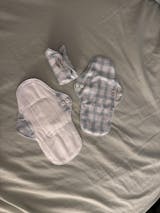
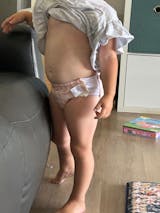
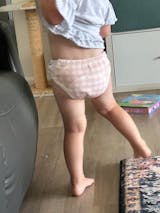
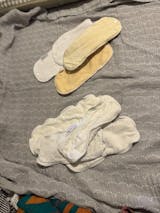
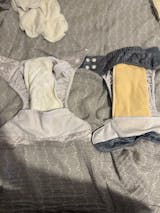


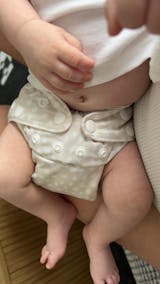
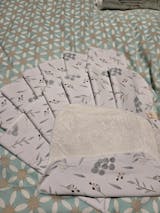
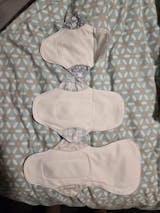
Leave a comment
All comments are moderated before being published.
This site is protected by hCaptcha and the hCaptcha Privacy Policy and Terms of Service apply.